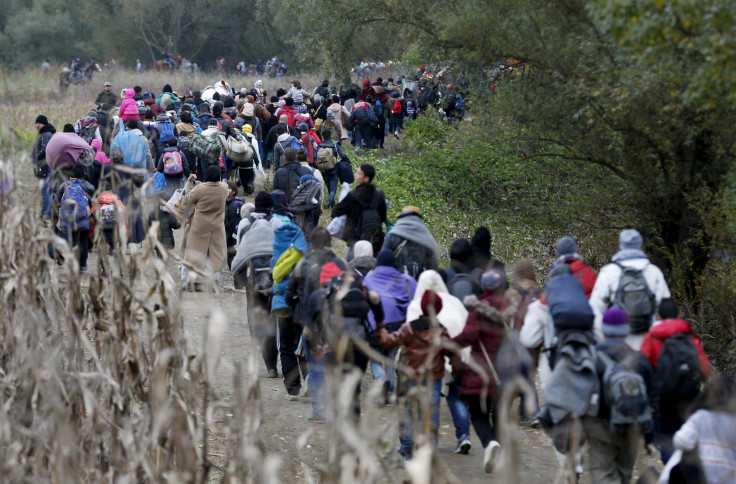EU Minisummit Seeks Unity In Balkans On Refugee Crisis

BRUSSELS (Reuters) -- Europe's chief executive Jean-Claude Juncker will meet Sunday with leaders from central and eastern Europe to push for a coordinated response to the influx of refugees before winter sets in. The mini-summit, which European Union diplomats said was sought by German Chancellor Angela Merkel, is the latest in a series of top-level EU meetings that have so far failed to settle on a common approach on how to deal with the thousands of migrants streaming into the EU every day.
Juncker, who heads the European Commission, has called leaders of Austria, Bulgaria, Croatia, Germany, Greece, Hungary, Macedonia, Romania, Serbia and Slovenia, plus refugee organizations involved, to attend the meeting in Brussels.
"Every day counts," Juncker said Sunday in an interview in the German weekly newspaper Bild am Sonntag. "Otherwise, we will soon see families in cold rivers in the Balkans perish miserably."
Some EU lawmakers have complained that all states should be there for the meeting at 4 p.m. local time (11 a.m. EDT) and that France's absence in particular could limit progress on a plan.
More than 680,000 migrants and refugees have crossed to Europe by sea so far this year, fleeing war and poverty in the Middle East, Africa and Asia, according to the International Organization for Migration.
Bulgaria, Romania and Serbia said they would close their borders if Germany or other countries shut the door on refugees, warning they would not let the Balkan region become a "buffer zone" for stranded migrants.
German media have reported that Juncker will present a 16-point plan, including an undertaking not to send migrants from one country to another without prior agreement. "The challenge now is to slow down the flow of migration and to bring our external borders under control," Juncker told Bild. "We must also make it clear that people who arrive at our borders who are not looking for international protection have no right to enter the EU."
After four years of economic crisis, Europe's governments are struggling to cope with an influx of people fleeing war and oppression in countries including Syria, Afghanistan and Eritrea. The lack of a common policy is straining ties between European leaders, raising questions about the EU's future.
Hungary's decision to close its borders with Croatia and Serbia has prompted others to follow, stranding tens of thousands in inhuman conditions as temperatures drop.
Rights group Amnesty International said the 28-country bloc could not afford to end another meeting without an agreed plan. "As winter looms, the sight of thousands of refugees sleeping rough as they make their way through Europe represents a damning indictment of the European Union's failure to offer a coordinated response to the refugee crisis," said John Dalhuisen, Amnesty's director for Europe and Central Asia.
(Reporting by Robin Emmott; Editing by Raissa Kasolowsky)
© Copyright Thomson Reuters 2024. All rights reserved.





















